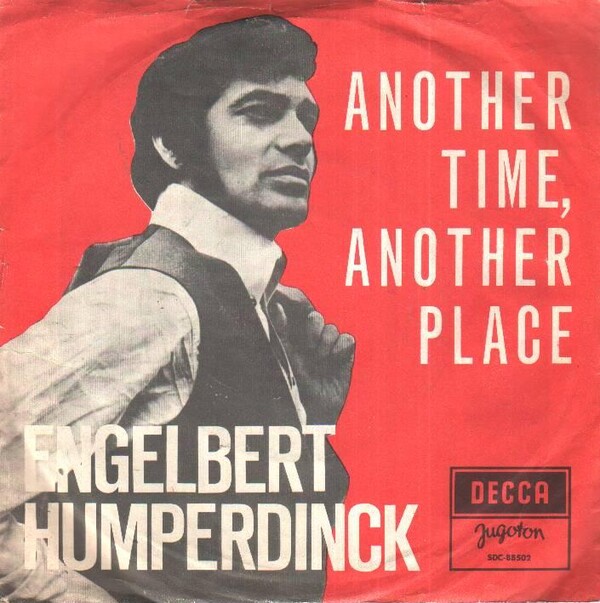In 1971, Engelbert Humperdinck released “Another Time, Another Place,” a song that many assumed to be about heartbreak — another chapter in the long list of love stories that defined his career. But behind its gentle melody and bittersweet lyrics lies something much deeper: a farewell not to a woman, but to a golden era of romantic music.

A Voice from the Golden Age
By the early ’70s, pop music was changing. Rock bands dominated the charts, and the smooth crooners of the previous decade were fading into nostalgia. Yet Engelbert — with his classic tuxedo and velvet voice — continued to sing songs of longing and elegance, refusing to chase trends.
When “Another Time, Another Place” appeared, many thought it reflected a personal goodbye, perhaps to a past love. In truth, Engelbert himself described it as a quiet salute to the generation of singers who came before him: Nat King Cole, Tony Bennett, and Perry Como. It was his way of saying, “I’ll carry your torch, even as the world moves on.”
Borrowed Title, Original Heart
The phrase “Another Time, Another Place” was not new — Tony Bennett had recorded a song with the same name in 1958. Engelbert admired Bennett deeply and, by choosing the same title, subtly linked his own legacy with that of his idols. But instead of imitation, he infused the song with his own emotional DNA — a European romanticism, a trace of sadness, and that unmistakable Engelbert sincerity.
In a 1970s interview, he once said, “Music was changing too fast, but I still believed there was room for honesty and melody. That’s what this song meant to me — a different place, a different time, but the same heart.”
A Changing World, A Steadfast Voice
The year 1971 also marked a period of transition in Engelbert’s career. Having achieved massive fame with hits like “Release Me” and “The Last Waltz,” he was beginning to explore more introspective material. “Another Time, Another Place” felt like a bridge between the lush romanticism of the 1960s and the more personal, reflective tone of the 1970s
It wasn’t just a love song — it was an artist’s meditation on his own place in a world that no longer sounded the same. And somehow, that very sincerity gave the song a timeless quality.
Legacy of a Gentle Goodbye
More than five decades later, “Another Time, Another Place” still feels like a letter to the past — to those crooners who sang before Engelbert, and to the fans who never stopped believing in melody.
It’s a quiet masterpiece, one that captures a rare kind of courage: the bravery to stay true to one’s own time, even when the world demands change.
🎵 Suggested listening: “Another Time, Another Place” (1971) — Engelbert Humperdinck’s tribute to the timeless elegance of music itself.
Lyrics